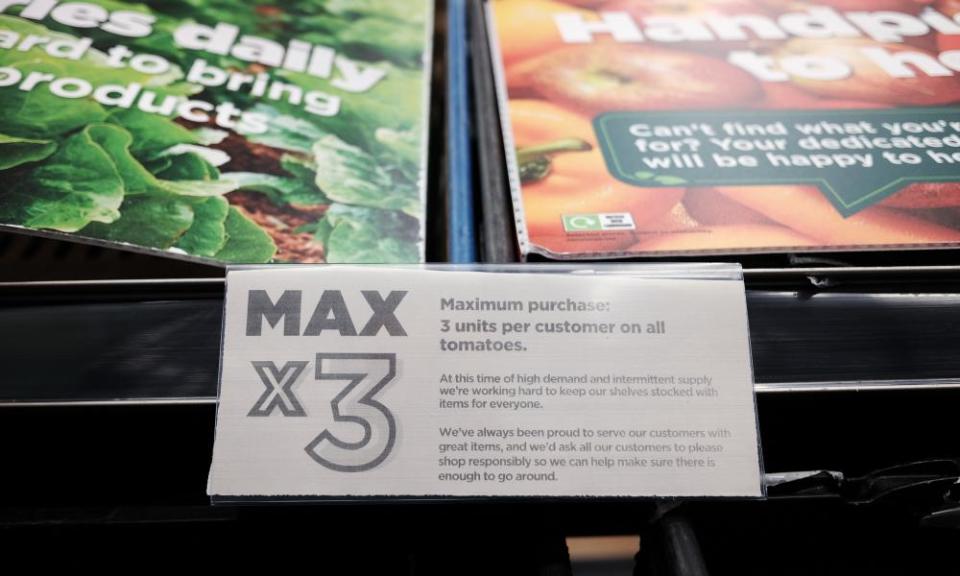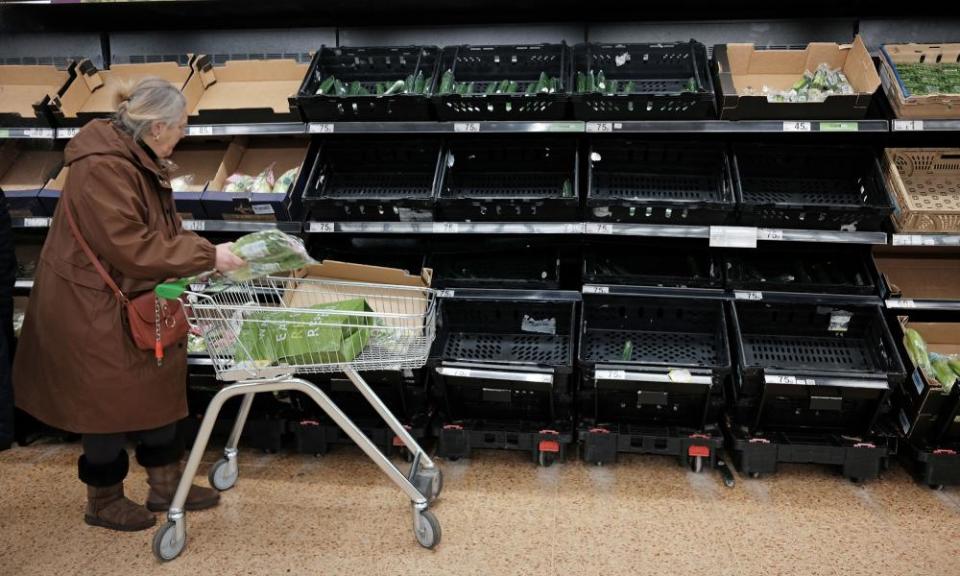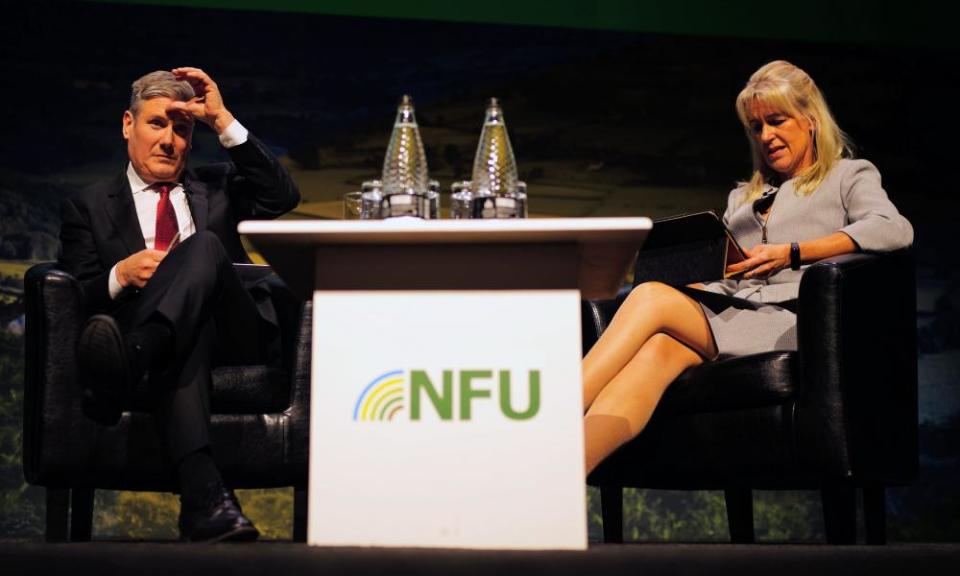Asda and Morrisons ration fresh produce including tomatoes and peppers

Asda and Morrisons are rationing fresh produce including tomatoes, cucumbers and peppers amid shortages caused by poor weather in Europe and north Africa as experts warn that the problems could last for weeks.
UK producers said supplies from British farms would also be hit as many have cut back planting amid the rising cost of heating greenhouses to grow salad crops.
The National Farmers’ Union president, Minette Batters, said further rationing of salad items was on the cards because of the impact of higher energy costs on British growers.
She told the NFU’s annual conference in Birmingham on Tuesday: “Domestic production of salad, including cucumbers and tomatoes, has fallen to its lowest level since records began in 1985.”
Batters added that energy-intensive producers needed help with their bills: “We can do something about it, but it needs government to act to drive down inflation in primary production.”
Asda said on Tuesday it was limiting shoppers to three items each on eight fresh produce lines – including broccoli, cauliflower, raspberries and lettuces – to ensure all customers could get what they need.
Morrisons is putting limits of two per item on packs of tomatoes, cucumbers, lettuce and peppers from Wednesday. A spokesperson said: “Like other supermarkets, we are experiencing sourcing challenges on some products that are grown in southern Spain and north Africa.
“We have introduced a temporary limit of three of each product on a very small number of fruit and vegetable lines, so customers can pick up the products they are looking for.”
Tesco, Sainsbury’s, Waitrose, Aldi and the Co-op are not currently planning to introduce restrictions.
The problem with UK salad crops comes after field crops such as carrots, parsnips, cauliflowers and cabbage were badly damaged by frost before Christmas.

Tim O’Malley, managing of supplier Nationwide Produce, said: “UK field crops such as carrots, parsnips, cauliflower and cabbage have been badly damaged by frost leading to many fields being totally written-off. This will mean both gaps on shelves and higher prices for these products over the coming months.”
The rationing at Asda and Morrisons comes after importers said that supplies of salad and field crops had been affected by a mixture of unseasonable weather in Spain and southern Europe and storms in the Mediterranean combined with a reduction in the amount of crops planted in heated glasshouses in the Netherlands, another big producer country, as energy bills have soared.
Industry insiders have said availability of produce is down by between 30% and 40% on some crops, with the pepper harvest down 70% in Spain, according to the catering supplier Reynolds. Wholesale prices have also shot up to three times normal levels in some cases, adding to inflation in stores as well as empty shelves.
At this time of the year Murcia, in southeastern Spain, produces an estimated 80% of many salad and vegetable crops sold in the UK. Production in Britain does not usually begin until March.
Italy, Morocco, Tunisia and Egypt are often used as alternative sources of supply to Spain in winter, but these areas have also had cold weather in recent weeks, and shipments from Morocco have also been held up by storms.
The problems come as UK importers continue to struggle with the increased costs and paperwork caused by Brexit, which has added to hold-ups at the border.
Some suppliers said potential bureaucratic hurdles meant the UK was not the first choice for hard-pressed European producers, although others said leaving the EU was not a factor in the current supply issues.
Batters said that, while Brexit and the pandemic had added costs to domestic food production, the big challenges for British salad growers were energy costs and lower returns for their produce.
Lee Stiles, secretary of the Lea Valley Growers Association, which represents a large group of greenhouse growers in Hertfordshire, said UK production of crops under glass such as tomatoes, cucumbers and peppers was likely to be 30% down this year on last year.

“You would normally see British salad produce on supermarket shelves this time of year. However, the growers could not achieve the economic price to plant and so have left the glasshouses empty,” he said.
“If the supermarkets had supported growers with an additional cost price increase they would have planted.”
Andrew Opie, the director of food and sustainability at the British Retail Consortium, said disruption on fruit and vegetables coming from southern Europe and north Africa was expected to last a few weeks. However, he added: “Supermarkets are adept at managing supply chain issues and are working with farmers to ensure that customers are able to access a wide range of fresh produce.”
The farming minister, Mark Spencer, told reporters at the NFU conference that there were “huge pressures in the energy market” but that he did not expect to see supermarkets having to ration food.

 Yahoo Finance
Yahoo Finance 